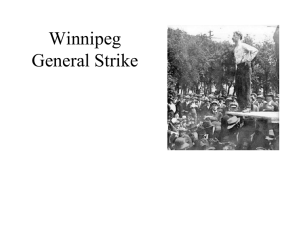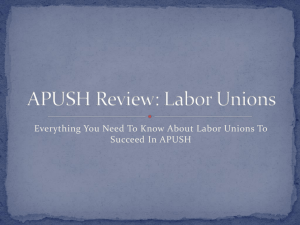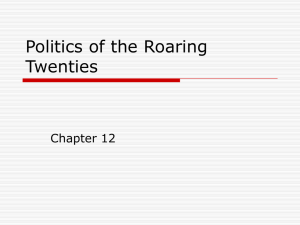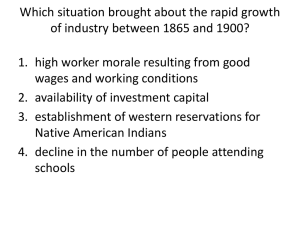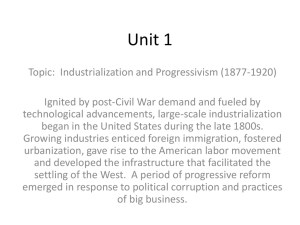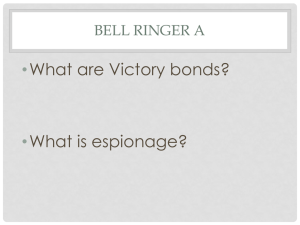陈春良-crime and punishment the story of chinese strike hard
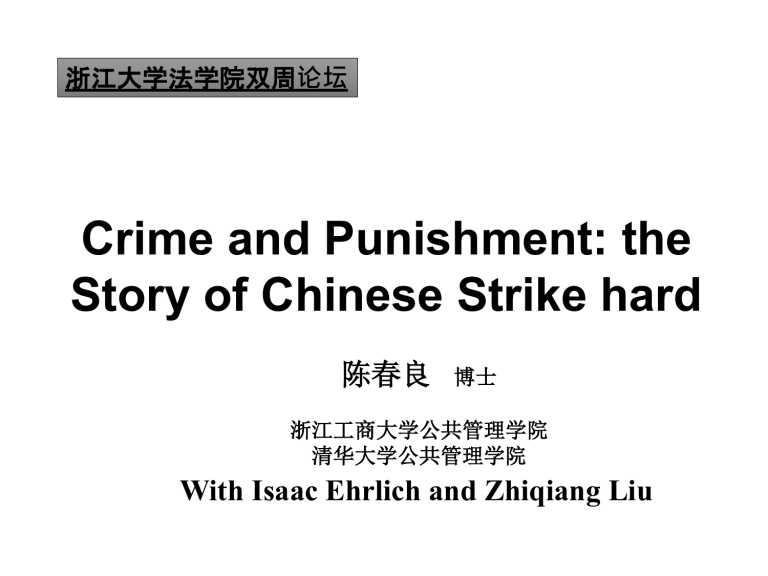
浙江大学法学院双周 论坛
Crime and Punishment: the
Story of Chinese Strike hard
陈春良
博士
浙江工商大学公共管理学院
清华大学公共管理学院
With Isaac Ehrlich and Zhiqiang Liu
outline
• 写在前面:犯罪经济学
• 研究动机
• 文献
• 严打:背景与典型事实
• 数据
• 结论和讨论
写在前面
• 犯罪经济学
• Becker ( 1968 )
理性选择框架中的犯罪与惩罚
写在前面
• 预期效用最大化问题
一阶条件:
• Ehrlich ( 1973 ):加入市场、时间配置,
犯罪的潜在收益与机会成本
写在前面
内点解
犯罪 劳动时间配置模型:刑罚威慑、犯罪激励
角点解
Motivation
• 刑罚威慑是犯罪经济学研究最重要主题
• 需要估计刑罚威慑弹性:惩罚概率、严厉
程度
• 执法变量和犯罪率之间的共时决定问题使
得威慑效应被低估
• 需要外生的冲击,构造威慑变量的外生变
化,用以估计刑罚威慑效应
• 惩罚概率的讨论和一致性较好,但是严厉
程度存在争议(威慑?、能力剥夺?)
Literature
• 惩罚严厉程度与犯罪 1 :监禁
Levitt ( 1996 )、 Levitt (1998) 、 Katz et al (2003)
Chen and Shapiro (2007) 、 Owens (2009) 、 Maurin and Ouss
(2009) 、 Drago et al (2009) 、
Paolo Buonanno and Steven
Raphael ( 2013 )
反对:
Lee and McCray (2009)
• 惩罚严厉程度与犯罪 2 :三犯出局 (Three strike)
Kessler and Levitt (1998) 、 Zimring et al (2001), Shepherd(2002), and Helland &Tabarrok (2007) (和严打不同,我们的创新)
• 严打与中国转型期刑事犯罪问题:
严打:
Bakken(1993, 2005a, b) 、 Harrod Tanner (1999) 、 Scott
Tanner (2005) 、 Trevaskes (2005, 2007, 2010)
中国犯罪:
Bin Liang (2005) 、 Jianhong Liu (2007) 、 Leana et al
( 2013 )
Crime, Punishment and Strike
Hard in China
Strike Hard: Backgrounds and
Stylized Facts
• Yanda , by far the most debatable public policy regarding crime and punishment in
China.
• Up till now, there are four nation-wide strike hard , launched respectively at 1983, 1996,
2001 and the very latest June 2010.
• The first one initiated in August, 1983, and lasting the next three years to 1986, most influential, worst criticized, deemed a great success by Chinese public security sector , and viewed as a good but less-welcome story for deterrence .
Strike Hard: Backgrounds and
Stylized Facts---continued
• Typical features of 1983 strike hard:
• Exogenous temporary shock (fixed three years)
• Severity increased almost for all categories of crimes
• Even weaker procedure protection, quick sentence, speedy trial
• Wide use of capital punishment
• Spot execution and public trials
Strike Hard: Backgrounds and
Stylized Facts---continued
• Two official documents by standing committee of NPC on Sep.2
nd , 1983
• In practice, stories and evidence of severity increase could be found in almost every yearbook from local public security sector describing strike hard.
• 我们看到的材料是没有区分犯罪类型?重
罚、快罚:非严重犯罪更多惩罚提升空间?
Strike Hard: Backgrounds and
Stylized Facts---continued
Strike Hard: Backgrounds and
Stylized Facts---continued
• 严打的原因
• 和当时犯罪形势没有关联 , since from 1982, crime rate has been entering into a downsloping path; and even in June, 1983, many provincial officers still cited local crime rates to show a even better public security order
(Harrod Tanner, 2005).
• To gain support for economic reformation, and was directly connected with a famous talking of Deng Xiaoping in July 26 th , 1983.
• There is no reverse causality. (至上而下的
安排和地方犯罪率无关)
严打与犯罪威慑
• 外生冲击与刑罚威慑
• 规模效应:所有犯罪
• 替代效应:犯罪类型差异和犯罪区间差异
• First look
严打与犯罪威慑
数据和分析策略
• 两个分析基准模型:短期、长期
• 标准犯罪供给方程
• 长期因素:替代效应
Data source: Yearbook of Law
数据和分析策略
• 浙江 28 个县 1979-1990
• 不同变量的定义和构造:国际惯例和说明
数据和分析策略
• We expect a short term crime reduction due to strike hard, but a positive or insignificant in post strike hard period.
• Three-year average comparison: a first look
• Regression-based
• Short-term: two-way fixed effect model, observed and unobserved heterogeneity
• Possible endogenous deterrence variable:
IV
• Long-term impact on crime control: trend
• Robustness check: experimenting with different strike hard dummies, repeating key regression using different dataset
The Results
• A first look from three-year average
• Table-3
The Results
• A first look from three-year average
• Table-3
The Results —regression-based analysis
The Results —regression-based analysis
The Results —regression-based analysis
The Results —regression-based analysis
The Results —regression-based analysis
The Results —Robustness
Check
(1) City level dataset
The Results —Robustness
Check
(2) Provincial level dataset
结论与讨论
• ( 1 )惩罚概率弹性: -0.589-0.9
• ( 2 )惩罚严厉程度: 26% ( 1983 作为参照)
• ( 3 )严厉程度可以解释一半左右的犯罪率
下降
• ( 4 )严打短期犯罪率下降,但是从长期来
看需要反思,犯罪率阶段波动
• ( 5 )主要是严厉威慑,而不是能力剥夺效
应发挥作用
致谢
请多多指正,欢迎交流:
陈春良
浙江工商大学 cnethernet@163.com
